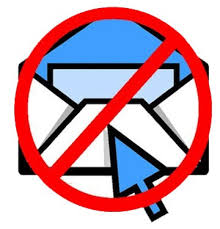Australia is becoming a nation of workaholics with many not realising the urge to constantly check emails is creating an “8am to 8pm work day”, according to Zac de Silva, Co-Owner of Nurture Change.
De Silva added that reading over documents, emails and creating to do lists are happening outside the office on a daily basis and people fail to see they’ve just worked a twelve hour day.
“Business owners and management are so engaged in their work, striving to get ahead that they’re unknowingly setting similar expectations of long hours on staff,” said De Silva.
“While it may appear that you have a focussed hard working team of employees you will end up with the exact opposite – productivity will plummet simply from exhaustion.”
A US survey of a thousand people found 59% of employees regularly received emails from their co-workers ‘after hours’ and 75% have themselves sent emails after 6pm.”
After 9pm the figures are surprisingly high – 62% of men send work emails after 9pm and 46% of women surveyed have.
Further, 61% of those surveyed check work emails while on holidays.
“Employers need to encourage workers to switch off by 6pm with no emails, internal or external, to be sent until the morning – include it in workplace policy,” said de Silva.
“I don’t believe there is a need for punitive action if the ban on after hour emails is broken but it needs to be discouraged because the health and productivity of staff is the priority.”
De Silva added that one in five people have tried to change their email habits in the past 12 months so people are realising they are not as getting as much done because they’re too bogged down by emails.
Talio, a facilities management services provider in Brisbane banned internal emails two years ago and staff are encouraged to pick up the phone in response to client emails – sales jumped 30% and productivity increased 40% within the first 12 months.
“Atomic 212 advertising agency implemented a Talk First campaign to recreate the high energy in the work place that existed before everyone stared at a screen and emailed.”
“The initiative is designed to give employees their personal lives back and recharge because emails keep staff constantly linked to the office, whether they are out at lunch, on a walk or even sleeping.”
“When business owners and managers gather at Nurture Change retreats, email is labelled as one of the biggest challenges in the workplace – time wasting and productivity zapping.”
In France, companies with more than 50 employees must negotiate with staff their rights to switch off outside work hours and if no agreement is reached then a charter must set out the hours when workers should and should not send work emails, said De Silva.
Moreover, Germany’s employment ministry released guidelines that banned its managers from calling or emailing staff out of hours, except in emergencies. This came after a number of firms including Volkswagen and BMW imposed similar restrictions.
De Silva suggests following these steps to better manage emails and increase productivity:
• After Hour Ban : Don’t look at emails once you have left the office.
• Auto Alert : Set up an automatic alert to let people know you won’t be checking your emails until the morning that way if it is urgent they can call you. This should also reduce your inbox because people won’t send you emails at night once they realise you won’t check them.
• Email Time : Set aside several periods in your day to action and delete emails.
• Verbal communication : Sometimes picking up the phone or walking down the hall is quicker in the long run than sending an email.
Realted stories:
Can you check an employee’s emails without their knowledge?
Employer considers bra ban to improve security
How can firms improve employee retention rates?

